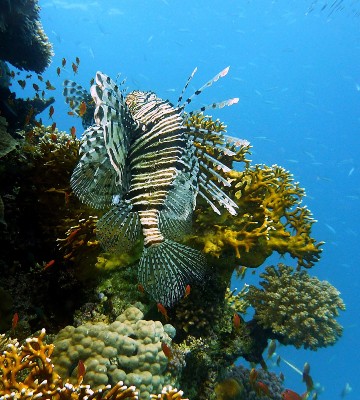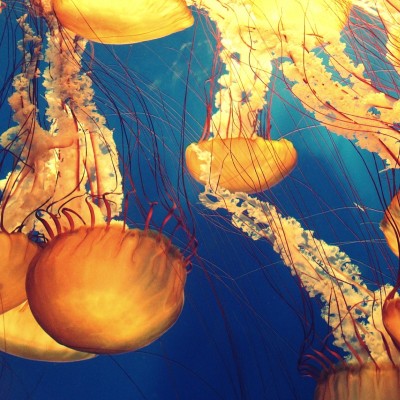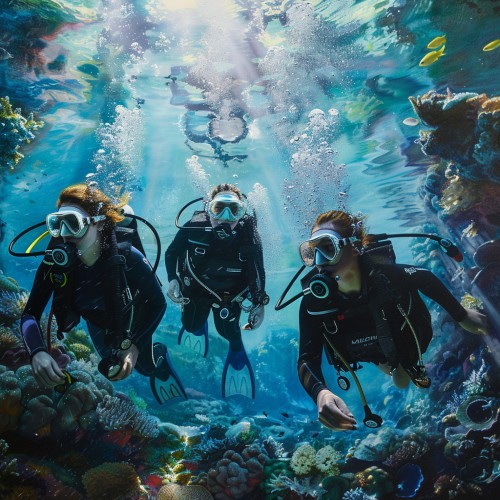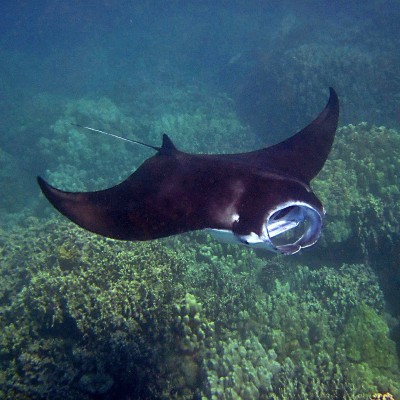- Home
- Marine Conservation
- How Beach Cleanups Help Protect Our Oceans and Marine Life
Table of Contents
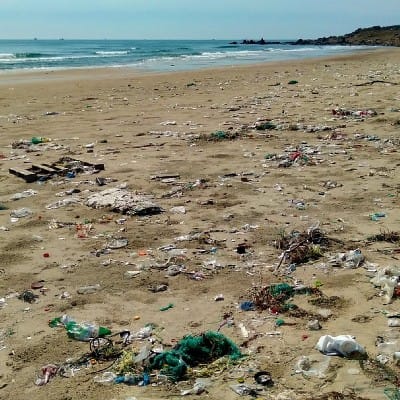
Every year, over 11 million metric tons of plastic waste enter the ocean – choking marine life, damaging fragile ecosystems, and polluting coastlines around the world. From remote islands to busy tourist beaches, ocean pollution has become a global crisis. But there’s a simple, powerful way we can all help turn the tide: beach cleanups.
Beach cleanups go far beyond picking up litter. They’re grassroots acts of environmental protection that safeguard marine habitats, prevent wildlife harm, and inspire collective action. Whether organized by global nonprofits or led by a few passionate locals, these cleanups are a vital tool in the fight against ocean pollution – and they work.
The Impact of Beach Pollution on Our Oceans
Our coastlines are the final stop for much of the waste we produce—and what lands on the beach rarely stays there. Wind, tides, and storm runoff carry trash into the ocean, where it becomes part of a growing web of marine debris. In fact, an estimated 80% of ocean plastic originates on land, much of it starting as litter on beaches, streets, and rivers.
Once in the ocean, this pollution poses a serious and long-lasting threat. Unlike natural materials, plastic doesn’t biodegrade, it breaks down into microplastics, which persist for hundreds of years and enter the food chain. Common culprits include:
Single-use plastics (bottles, bags, straws)
Cigarette butts (made of plastic filters)
Abandoned fishing gear
Food wrappers and foam containers
Some regions—like the Great Pacific Garbage Patch or popular tourist beaches in Southeast Asia—have become infamous for their visible pollution. But even remote shorelines aren’t immune. Ocean currents carry debris across continents, making this a truly global issue.
This steady stream of pollution alters the health of entire marine ecosystems. It clouds waters, disrupts coral reefs, and damages breeding grounds for sea life. It even impacts human communities by harming tourism, fisheries, and coastal economies.
Consequences for Marine Life
Ocean pollution doesn’t just look bad, it kills. Marine animals often mistake floating plastic for food or become entangled in debris, leading to injury, starvation, or death. The scale of the problem is staggering: it’s estimated that over 1 million marine animals die each year due to plastic pollution.
Here are just a few heartbreaking ways marine life is impacted:
Sea turtles often confuse plastic bags for jellyfish, a favorite food. Ingesting even a small amount can block their digestive systems and prove fatal.
Seabirds like albatrosses feed plastic to their chicks, unaware it’s inedible. Autopsies reveal stomachs full of bottle caps, cigarette lighters, and fishing line.
Fish and shellfish ingest microplastics, which then enter the human food chain.
Marine mammals such as seals, dolphins, and whales get entangled in fishing nets, ropes, and packaging bands, often leading to drowning or amputation.
Pollution also affects marine life in less visible but equally damaging ways. Toxic chemicals leaching from plastics can alter hormone levels, disrupt reproduction, and even affect navigation in migratory species. Coral reefs, already stressed by climate change, can be smothered by plastic debris, hindering their ability to grow and support biodiversity.
Each piece of trash that ends up in the ocean has the potential to do harm, sometimes for centuries. That’s why prevention, through cleanups and conscious consumer choices, is absolutely critical.
How Beach Cleanups Make a Difference
At first glance, picking up trash on a beach might feel like a small act. But the collective impact is enormous. Beach cleanups are one of the most direct and effective ways we can prevent pollution from reaching our oceans and harming marine life.
Here’s how cleanups help:

Intercept debris before it enters the ocean: Removing trash from beaches and shorelines cuts off a major entry point for marine pollution.
Protect sensitive ecosystems: Beaches, dunes, tidepools, and mangroves are rich in life and easily damaged by trash. Cleanups help maintain these critical habitats.
Promote environmental stewardship: Participating in a cleanup makes people more aware of the pollution problem—and more likely to reduce their own waste.
Support scientific research: Many cleanup efforts include data collection, documenting what types of trash are most common. This information helps shape policy, influence product design, and guide education campaigns.
Empower communities: Cleanups build a sense of local pride and global connection. They’re often the first step in deeper environmental engagement.
In short, beach cleanups aren’t just reactive, they’re transformative. They spark conversations, change behaviors, and protect the very ecosystems we love to enjoy. And when paired with broader conservation efforts, they become a powerful force for ocean health.
Organizations That Organize Beach Cleanups
If you’re feeling inspired to make a difference, you’re not alone – and you don’t have to start from scratch. Across the globe, incredible organizations are leading the charge in organizing beach cleanups, supporting volunteers, and providing tools to help individuals and communities protect our oceans. Whether you want to join an existing event or start your own, these groups are excellent places to begin.
1. Ocean Conservancy
Website: https://oceanconservancy.org
Ocean Conservancy leads the International Coastal Cleanup (ICC), one of the largest volunteer efforts for ocean health. Each year, millions of people from over 100 countries participate in this global event. They also offer the Clean Swell app to log your trash pickups and contribute to citizen science.
2. Surfrider Foundation
Website: https://www.surfrider.org
Surfrider’s network of passionate volunteers hosts hundreds of beach cleanups every year across U.S. coastlines. Their Beach Cleanup Program offers free toolkits, resources, and opportunities to get involved at the local chapter level. Surfrider also advocates for policy change to address the root causes of marine litter.
3. 4Ocean
Website: https://www.4ocean.com
This mission-driven business funds cleanups by selling bracelets made from recycled ocean plastic. 4Ocean’s cleanup crews operate daily in countries like Indonesia, Haiti, and the U.S. You can support their efforts financially or join one of their scheduled cleanup events when available.
4. Keep America Beautiful
Website: https://kab.org
KAB works with local affiliates to organize cleanups, especially through its Great American Cleanup, which mobilizes thousands of volunteers across all 50 states. While not ocean-specific, their efforts make a major impact on rivers, lakes, and shorelines, preventing debris from ever reaching the sea.
5. PADI AWARE Foundation (formerly Project AWARE)
Website: https://www.padiaware.org
For scuba divers and ocean lovers, PADI AWARE offers Dive Against Debris—an underwater cleanup initiative that empowers divers to remove and report marine debris. Their efforts contribute to the largest underwater citizen science database on the planet.
6. The Ocean Cleanup
Website: https://theoceancleanup.com
Focused on large-scale solutions, The Ocean Cleanup uses innovative technology to remove plastic from rivers and ocean gyres. While they don’t host public beach cleanups, they offer incredible educational resources, updates on their cleanup efforts, and ways to support their mission through donations or partnerships.
Real-World Results: Success Stories
Beach cleanups may start with a single person picking up a piece of trash, but their impact can ripple outward in powerful ways. Around the world, cleanup initiatives, large and small, are delivering real results for our oceans, communities, and wildlife. These success stories show that when people come together, change truly is possible.
The International Coastal Cleanup (ICC)
Since its launch in 1986, the International Coastal Cleanup, led by Ocean Conservancy, has mobilized over 17 million volunteers to remove more than 350 million pounds of trash from beaches and waterways. Each year, volunteers in more than 100 countries come together to collect not only litter, but vital data on the types of debris they find. This information is used to inform policy decisions and push for changes in packaging and plastic use globally.
Bali’s Biggest Beach Cleanup
In Indonesia, a country heavily impacted by ocean plastic, One Island One Voice and local partners organized Bali’s Biggest Beach Cleanup, bringing together over 12,000 volunteers in a single day across 115 locations. The result: more than 60 tons of trash collected, and a surge in awareness and advocacy among residents and tourists alike.
Surfrider Foundation’s Long-Term Impact
Surfrider Foundation’s beach cleanup efforts go beyond one-day events. Their Blue Water Task Force and Beach Cleanup Program consistently remove hundreds of thousands of pounds of trash annually while also tracking sources and promoting reusable alternatives. In California alone, Surfrider chapters have been instrumental in passing local plastic bag bans, proving how cleanup data can drive legislative change.
Local Heroes: Community-Driven Wins
In coastal towns across the U.S., grassroots groups are seeing big results from consistent effort. In Florida, a family-led group organized monthly cleanups for a year and cleared over 5,000 pounds of litter from just one small beach. Their story inspired nearby towns to do the same. In Portugal, student-led cleanup projects led to curriculum changes that now teach plastic awareness in schools.
These stories highlight a key truth: Beach cleanups are more than events – they’re catalysts. They educate communities, empower individuals, and push governments and businesses to take responsibility. Every glove worn, every trash bag filled, and every data point recorded contributes to a cleaner, healthier ocean for future generations.



